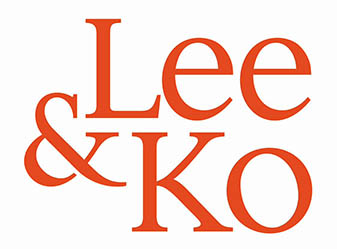|
SOUTH KOREA |
South Korea has established a comprehensive regulatory framework to address environmental, social and governance (ESG) concerns. The Framework Act on Carbon Neutrality and Green Growth for Coping with Climate Change Crisis serves as a legal foundation to mitigate the severe impacts of the climate crisis and facilitate the transition to a carbon-neutral society. Social laws focus on labour rights, fair trade and consumer protection, while governance laws emphasise transparency, accountability, and responsible investment practices.
South Korea has been expanding companies’ ESG responsibilities by developing frameworks and guidelines in response to the growing global attention to ESG issues. These frameworks assist businesses in integrating ESG considerations into their operations and decision-making processes. Regulations mandating disclosure have also been implemented to enhance transparency and provide stakeholders with the necessary information. The country is also considering legislative measures to ensure that companies operating within its jurisdiction conduct thorough due diligence to address human rights abuses and environmental risks in their supply chains.
ENVIRONMENTAL LAWS

Partner
Lee & Ko
Seoul
Tel: +82 2 6386 0899
Email: hongkyun.kim@leeko.com
South Korea’s environmental regulatory framework consists of the Framework Act on Environmental Policy, which serves as the primary law with a constitutional nature, along with more than 70 specific environmental laws that target various pollution sources. Within this extensive framework, several key individual laws are closely aligned with ESG principles and are worth discussing in detail.
Air, water and soil. Air and water quality are regulated by the Clean Air Conservation Act, the Framework Act on Water Management, and the Water Environment Conservation Act. The Soil Conservation Act regulates matters relating to soil pollution, prohibits the disposal of pollutants and imposes liability for soil contamination.
Waste and resource circulation. Collection, transportation, storage, recycling and disposal of solid and hazardous waste are controlled by the Wastes Control Act, the Act on the Promotion of Saving and Recycling of Resources, and the Framework Act on Resources Circulation.
Chemicals. The Act on the Registration and Evaluation etc. of Chemical Substances (K-REACH) regulates the market entry of a chemical substance. The Chemical Substances Control Act regulates the use of chemicals once they are introduced into domestic markets. Also, the Consumer Chemical Products and Biocides Safety Control Act (K-BPR) imposes safety and labelling standards for certain consumer chemical products, and requires manufacturers and importers of biocidal products to obtain prior approval for their use.
Climate change and energy use. Korea has established the Emissions Trading Scheme (K-ETS) under the Act on the Allocation and Trading of Greenhouse Gas Emission Permits, implementing a market-based approach that prices greenhouse gas emissions and enables the trading of emissions permits. The Energy Use Rationalisation Act aims to enhance energy efficiency and mitigate the environmental impact of energy consumption.
Others. In addition to those mentioned above, there are other environment-related laws such as the Act on the Conservation and Use of Biological Diversity and the Act on the Promotion of Purchase of Green Products.
SOCIAL LAWS

Partner
Lee & Ko
Seoul
Tel: +82 2 772 5954
Email: sangmin.kim2@leeko.com
Competition protection. The Monopoly Regulation and Fair Trade Act serves as the primary legislation governing illegal cartel behaviour and unfair trade practices. In addition, the Act on Fair Labelling and Advertising, the Fair Transactions in Subcontracting Act, the Fair Agency Transactions Act, and the Act on Fair Transactions in Large Retail Business aim to promote fair competition and sound business practices.
Product safety and consumer protection. The Framework Act on the Safety of Products, the Framework Act on Consumers, the Electrical Appliances and the Consumer Products Safety Control Act, the Product Liability Act, and the Food Sanitation Act are key laws that provide a framework for ensuring product safety and consumer protection.
Labour. The Labour Standards Act is the basis for regulating labour relations, while the Occupational Safety and Health Act and the Serious Accidents Punishment Act establish regulations to ensure the well-being and safety of employees in the workplace.
Human rights. The Korean Criminal Code, the National Human Rights Commission of Korea Act, and the Child Welfare Act are key laws that contribute to the preservation and safeguarding of human rights. The draft of the Framework Act on Human Rights Policy was proposed by the government in 2021 to provide a stronger legal basis for the National Human Rights Basic Plan and to integrate international standards into domestic policies, and the legislation is currently in progress.
Data protection. The Personal Information Protection Act safeguards the privacy and personal information of individuals by regulating the collection, use and disclosure of personal data. The Act on Promotion of Information and Communications Network Utilisation and Information Protection focuses on protecting data transmitted through information and communication networks. The Credit Information Use and Protection Act aims to safeguard privacy through the systematic management of credit information and prevention of its misuse.
GOVERNANCE LAWS

Associate
Lee & Ko
Seoul
Tel: +82 2 6386 7909
Email: yunsung.kim@leeko.com
Duties of agents. The Commercial Code governs the duties of directors and auditors in corporations. The Criminal Code regulates offences such as occupational embezzlement and breach of trust committed during the course of their duties.
Disclosure. Transparency, accountability and fairness in financial reporting and other disclosures are governed by key laws such as the Financial Investment Services and Capital Markets Act, the Regulations on Disclosure in the Securities Market, and the Act on External Audit of Stock Companies
Business groups. Activities of conglomerates or large business groups commonly referred to as chaebols are regulated by the Monopoly Regulation and Fair Trade Act, and the Act on Corporate Governance of Financial Companies.
Anti-corruption. The Act on the Prevention of Corruption and the Establishment and Management of the Anti-corruption and Civil Rights Commission, the Improper Solicitation and Graft Act, and the Act on Combating Bribery of Foreign Public Officials in International Business Transactions are key laws that regulate corruption.
EXPANDED ESG RESPONSIBILITIES
The K-taxonomy is a framework to foster sustainable investment built under the Environmental Technology and Industry Support Act. Following the initial draft announcement in December 2021, an amended version was published in December 2022, incorporating additions related to nuclear power. The new Green Bond Guidelines were implemented in January 2023 to enhance the credibility of investments in green bonds and promote the active growth of the green bond market by preventing the issuance of greenwashing bonds.
Although greenwashing practices that exaggerate a company’s ESG performance are regulated under the Act on Fair Labelling and Advertising, and the Environmental Technology and Industry Support Act, the actual imposition of fines and penalties has been limited due to the challenges in determining specific criteria in practical terms. Recognising this issue, the Fair Trade Commission and the Ministry of Environment are working on revising regulations and developing guidelines to establish clear criteria for identifying greenwashing practices.
DISCLOSURE REGULATIONS
In 2021, the Financial Services Commission introduced a sustainability reporting rule that will be implemented in phases. By the end of 2025, it will apply to Korea Composite Stock Price Index (KOSPI) entities with assets exceeding KRW2 trillion (USD760 billion), and will be extended to all KOSPI entities by the end of 2030. The ESG disclosure system road map is expected to be announced within this year, which will outline the companies subject to mandatory reporting and provide details on the criteria and standards for disclosure.
The Environmental Technology and Industry Support Act requires companies to disclose their environmental management systems, goals and performance related to resource and energy conservation and the reduction of environmental pollutants beginning in 2022. The Korea Exchange has also issued the Guidelines on Corporate Governance Reports for listed companies. Since 2022, companies listed on the KOSPI with total assets of KRW1 trillion or more have been mandated to prepare and disclose corporate governance reports.
VOLUNTARY DISCLOSURE
The Korea Corporate Governance Service in 2021 published an amended version of the ESG Best Practice Guideline. The guideline has been used in ESG evaluations and serves as a reference for ESG management standards of domestic listed companies and various government policies.
Responding to legislative trends of laws on human rights and environmental supply chain due diligence, such as the EU Directive on Corporate Sustainability Due Diligence, South Korea introduced the K-ESG Guidelines for Supply Chain Management in December 2022. Recognising the importance of establishing a comprehensive system for supply chain sustainability, legislative proposals on this topic are currently being discussed by various stakeholders.
Lee & Ko
Hanjin Building, 63 Namdaemun-ro
jung-gu, Seoul 04532 South Korea
Tel: +82 2 772 4000
Email:mail@leeko.com
































